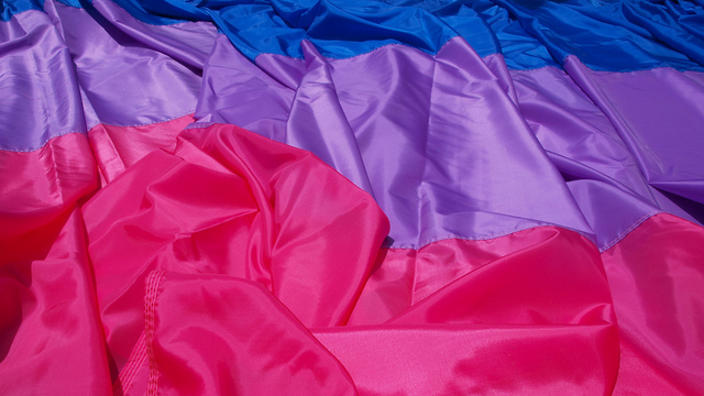
Kathmandu (Pahichan) June 25 – Being bisexual comes loaded with a host of stereotypes and myths, from being promiscuous and jumping between beds, to being unsure about their sexual orientation.
These stereotypes are not harmless labels; they can have serious consequences for bisexual people, who often feel that they don’t belong in either heteronormative society or within the LGBTQIA+ society.
Despite society’s gradual enlightenment toward the LGBTQIA+ community, bisexual people are more likely to stay in the closet than their gay and lesbian peers, out of fear of stigma and stereotypes, much of which comes from the LGBTI community itself.
According to US-based think tank, Pew Research Centre, just 28 per cent of bisexual people have ‘come out’ to all their friends and family, compared 71 per cent of lesbians and 77 per cent of gay men.
The research project – which involved almost 1,200 people – revealed that many bisexual people often have an unfair reputation for being promiscuous, ‘double dipping’ in the dating pool, or simply being indecisive about their sexuality. Some people don’t even believe that bisexuality exists, that it’s simply a “pit stop” on the way to being gay or a lesbian.
Far from having the best of both worlds, many bisexual people feel that it’s easier, and for some, safer, to keep their sexual orientation to themselves.
Julia Taylor, a PhD candidate researching at La Trobe University’s Australian Research Centre in Sex, Health and Society, says that the “significant” problem of biphobia started to develop in the 1980s, and is rooted in fear and misunderstanding.
“When the HIV/AIDS epidemic became a serious problem for the gay community 30 years ago, a lot of ideas came up about bisexual people that were pretty damning and pretty unfair; that they’re promiscuous and can easily move between men and women,” Ms Taylor explains.
“The lack of understanding and acceptance of bi people in the LGBTI community is planted in heterosexual privilege, because bisexual people can blend into heterosexual society if they want to and live quietly and that can be viewed as a ‘us and them’ issue,” she continues.
Wanted or not, access to that privilege comes at a heavy cost.
LATimes writer Emily Alpert articulated the discrimination bisexual people face when she wrote the following in 2013: “Bisexual women complain they are leered at by straight men and rejected by some lesbians as sexual ‘tourists’ who will abandon them for men.
“Bisexual men, in turn, struggle to persuade men and women alike that they aren’t just gay men with one foot in the closet. Both are stereotyped as oversexed swingers who cannot be trusted.”
In Canada, postdoctoral research fellow Corey Flanders, from The Centre for Addiction and Mental Health, says that biphobia committed by LGBTI persons can make bisexual people feel alone and isolated.
“With gay and lesbian individuals, [social support] can be accessed in queer community spaces if not in predominantly heterosexual spaces,” she tells The Daily Beast. “With bisexual individuals, this is not always the case.”
When bisexual people are rejected, questioned and ridiculed – not just by society but by the LGBTI community – it creates a ‘double stigma’, often resulting in extremely poor health outcomes, both physical and mental.
A study published in the Journal of Bisexuality in 2015 revealed that bisexual people are more likely than their straight peers to be in poor health, and a Kent State University study revealed that bisexual women had higher rates of self-harm or suicidal thoughts than straight or lesbian women.
A large-scale US study exposed the fact that bisexual women and men have higher rates of mood and anxiety disorders compared to lesbians, gay men, and heterosexual people. This includes almost 60 per cent of bisexual women who had a lifelong history of mood disorder, compared to almost 45 per cent of lesbian women and just over 30 per cent of straight women.
Ms Taylor is researching whether there is a link between bisexual people’s poor health and biphobia as part of the world’s largest study of bisexual people. Anecdotally, she believes there’s a strong tie between the two and believes the first way to fix things is to start with conversations that break the dangerous stereotypes that are hurting bisexual people.
With about one in 10 people identifying as bisexual, there are a huge number of people affected.
“It’s a very invisible issue and that’s extremely problematic,” Taylor says. “We need to talk more about the struggles that bisexual people face and how we can fix these problems.”
Copy : http://www.sbs.com.au
Copyright © All right reserved to pahichan.com Site By: Sobij.